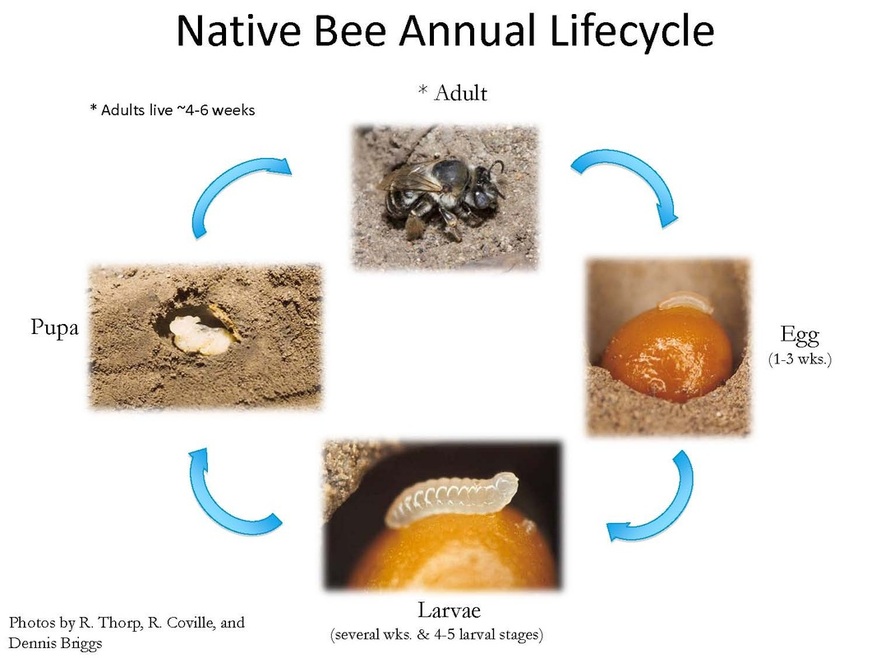When a female solitary bee emerges from her nest, as an adult, she is mated with almost immediately. It is then her duty alone to build and provision a nest for her eggs. She sets out to find suitable habitat, whether that's dug in the ground, in a tree cavity, or some other place, then she starts collecting provisions for the nest. The "provisions" she collects are in the form of nectar and pollen, which she forms into a small loaf or "bee bread". Pollen provides the egg with essential vitamins, and protein, and the nectar contains sugars. An egg is laid on the bee bread and when it hatches the larvae consumes it. The larva grows quickly then changes into a pupa, and stays this way for months before finally becoming an adult. The number of eggs each female produces is variable and depends upon the species.

